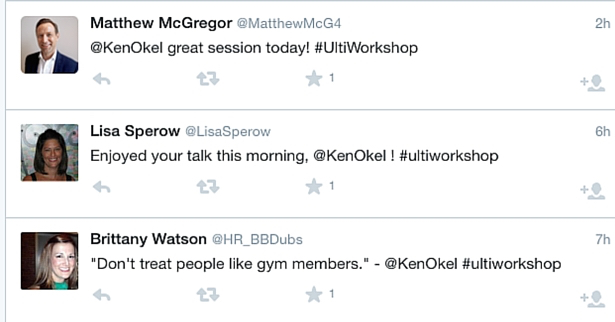 When it comes to setting boundaries at work, you’re probably your own worst enemy. It can be very tempting to do one more work thing before you unplug for the day.
When it comes to setting boundaries at work, you’re probably your own worst enemy. It can be very tempting to do one more work thing before you unplug for the day.
As you might guess, one more thing is rarely one more thing. Suddenly, you’re taking on several tasks and a bunch of your free time is gone. The metal mileage starts to add up and you find yourself burning out or neglecting family responsibilities.
This is a trap for the hardworking and well intentioned. As someone who can work a non-traditional schedule, I know how easy it is to blur the line between work time and play time. I’ve found these tips to be useful, when it comes to making sure the two do not mix:
Create a Time Boundary
By a certain time, you make an agreement to stop working. Even if you’re not in the office, you don’t take a quick look at your email. You’ve drawn a line in the sand.
Create a reward around this goal. If you honor the work boundary, then treat yourself with some special food or drink, a movie, or even a little more time spent in the shower. You want to give yourself motivation to change.
You’re Not a Machine
Even robots need a break for maintenance. Get away from the mindset of thinking time not spent on work is unproductive. Setting boundaries at work can be about honoring your time away from the job.
Understand you’ll have times when you’re hot and will get a lot of work done. While it will feel effortless, it won’t last forever.
Imagine a basketball player who is enjoying a shoot streak. He or she should continue to shoot because it’s a time of heightened productivity. But even the best athletes know, streaks come to an end. It’s okay to pass the “ball” to tomorrow and stop working.
A lot of my creative thinking comes when I’m not sitting at a desk but doing something else, usually something I enjoy. The idea just pops in my mind. I never would have reached the same conclusions had I been actively trying to come up with them, while in work mode.
Analyze Your Top Performance
Think about your workday and your workweek. When do you perform at your best? Is it early in the day, after lunch, or an hour before quitting time?
With that knowledge, match up tasks that require extra focus to the times when you’re at your best. Menial tasks likely do not require your A game. Move those duties to less productive times.
Just by making this shift, you can accomplish more and feel like you don’t have to keep working, after you’ve left work. Setting boundaries at work is about giving you control of your productive time.






